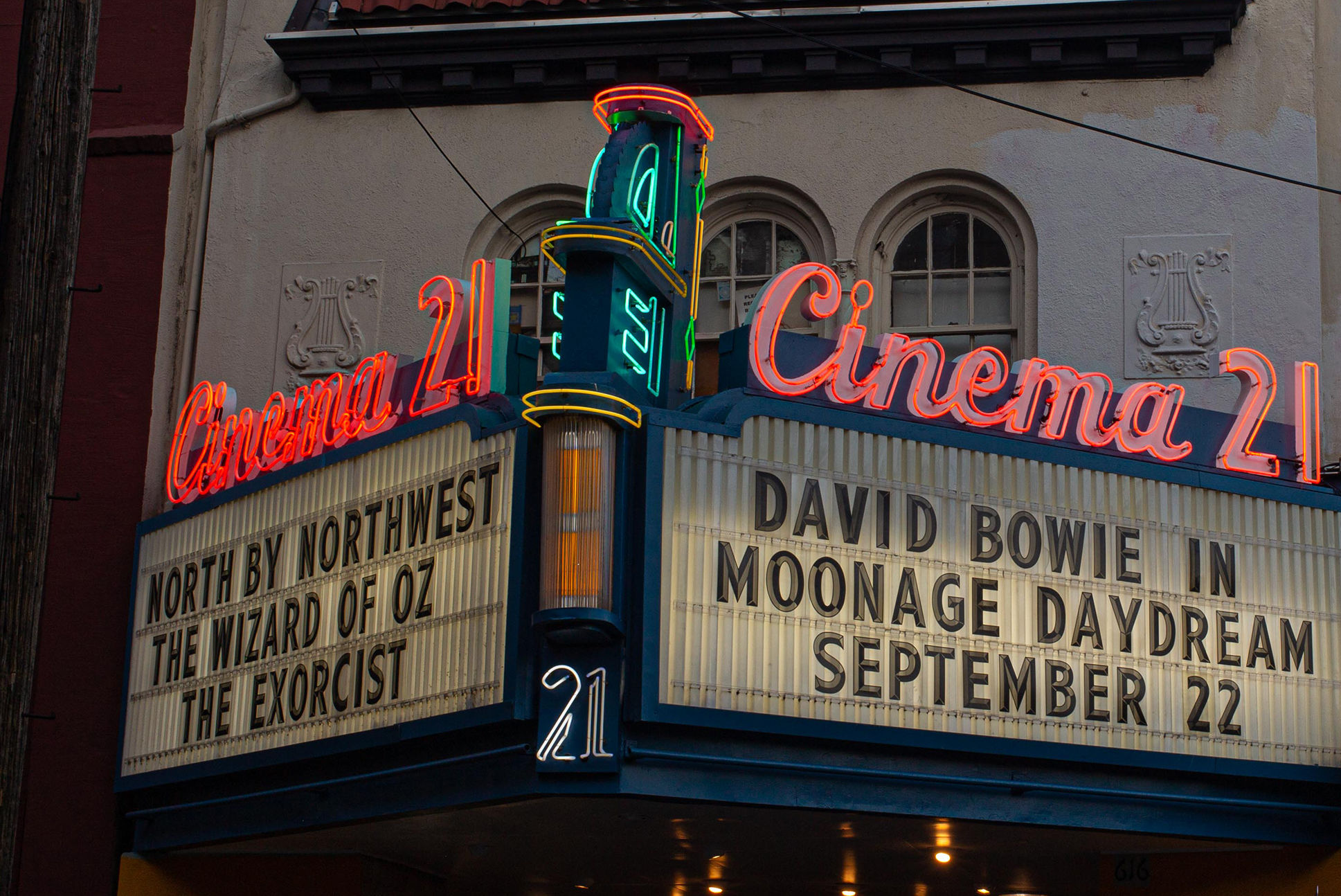R&B Phenom Chanti Darling Invites Portland to the Dance Floor

Chanti Darling's album release is at the Doug Fir on August 8.
Image: Courtesy Lucky BK
The vision materialized as Chanticleer Trü labored on a pot farm in Northern California. In fall 2015, he’d traveled south from Portland to trim bud to earn some extra money. The dissolution of his band, Magic Mouth—a post-punk-funk-rockabilly outfit with electrifying stage shows—left Trü contemplating his next act. He’d considered a solo project before, but only while endlessly clipping cannabis in remote Humboldt County did the dream coalesce.
“I remembered when I would do one-off events,” says Trü. “I sang at the piano at Pépé le Moko. I played at the [now-defunct] Savoy Tavern. And people were like, ‘I never knew you could sing like that.’” He saw the next act as a return to the music that had formed him. “I grew up with jazz, gospel, funk. I’m a DJ who’s been obsessed with disco and house. Magic Mouth was the experiment. This is going back to my roots."
That epiphany became Chanti Darling, a project that, three years later, has reached full, neon-bright fruition. RNB Vol. 1, Trü’s debut LP, drops this month from stalwart Portland indie label Tender Loving Empire. With 10 superbly produced tracks of shimmering electro-soul, sexy boogie-funk synths, and driving house beats, all anchored by Trü’s commanding, classically trained voice, the album delivers Portland’s most compelling invitation to the dance floor in the last, oh, forever. Live, Trü—who identifies as queer—brings party-starting charisma, a throwback wardrobe, and voguing backup dancers to the stage. In a town known mostly for contemplative head-bobbing, Trü stirs audiences to get down—no small miracle.
For the 33-year-old, RNB Vol. 1 is at once heartfelt homage to R&B and the many genres that have fed and branched from it, and repudiation of self-serious musical dogma, bringing levity to the form. “I wanted it to kinda be a string theory of R&B,” he says. “You jump in one portal and you’re in a disco world, and you come out and you’re in a freestyle world. Then you’re in more of a disco world, then in a house music world. I wanted to draw the lines between all those things. But it’s about having fun, ultimately.”
Trü (his given name is Stephfon Bartee-Smith, but he renamed himself after a proud, canny rooster from the medieval Canterbury Tales) grew up in a prodigiously musical home. His mother, a singer who recorded backup vocals for the likes of Etta James and Melba Moore, performed at supper clubs, and acted in theater productions. She enrolled her three sons—Trü is the middle child—in church choir and brought them to gigs and studio sessions. Trü’s stepfather was in the army, and the family moved frequently—from Germany to Guam to England to Okinawa—but in each home, they set up a rehearsal room complete with piano (Trü’s main instrument), guitars, and drum kit. From the time he could talk, Trü sang: as a kid, one of his go-tos was New Edition’s “Mr. Telephone Man,” a track he still loves. When the family moved to Georgia, they teamed with cousins to form a band that covered Marvin Gaye and Jackson 5 at street fests and community centers. Later, as a 16-year-old in New York, he landed his first job: serenading Macaroni Grill diners with “O Mio Babbino Caro” and “Happy Birthday” en Italiano.
Around the house, Trü’s mom played a lot of Dinah Washington, Ella Fitzgerald, Sarah Vaughan—“the ladies,” Trü calls them. “My first love musically was probably Ella Fitzgerald,” he says. “I was just like, wow, she can do so much with her voice. She’s, like, literally shredding. The band can’t even keep up with her. It shaped the way I approach voice.”
Trü spent college honing that voice. He studied opera at DePaul University in Chicago, then earned an MFA in musical theater at New York’s American Musical and Dramatic Academy. (With Chanti Darling, he’ll occasionally curl his voice into a glorious falsetto wail.) He continued to bounce around the country in his 20s, performing everything from August Wilson to STOMP, and, at one point, playing a cockroach in an experimental theater show in a warehouse in San Francisco’s Tenderloin neighborhood. (“We won an award for that!”) A self-described hustler, he supplemented the acting gigs with DJ sets—his Jump Jack Sound Machine dance parties remain a monthly fixture in Portland—and nightlife production.
When Trü moved here in 2010, he immediately began making waves. Holocene booker Gina Altamura was an early fan. “His voice is so singular, so powerful,” she says. “For me, as a big R&B nerd, it’s fun to see the way Chanti is able to fold all of these past influences and phases of R&B music into what he’s doing in such an artful way. The sound isn’t antique—it sounds contemporary, but there’s a certain timelessness to a really strong R&B vocalist. It’s one of those stops-you-in-your-tracks voices.”
Altamura adds that Trü is part of a shift in Portland’s sonic scene away from flannel-clad indie rock. “It’s cool to see our whole musical landscape change toward more electronic music and dance music and urban styles,” she says, citing acts like Blossom, Amenta Abioto, and Frankie Simone. “Chanti has played a big part in that.”
By Trü’s calculation, it’s simple. “It’s about the grooves and the feelings,” he says. “It’s definitely feel-good, even if you feel bad.”




